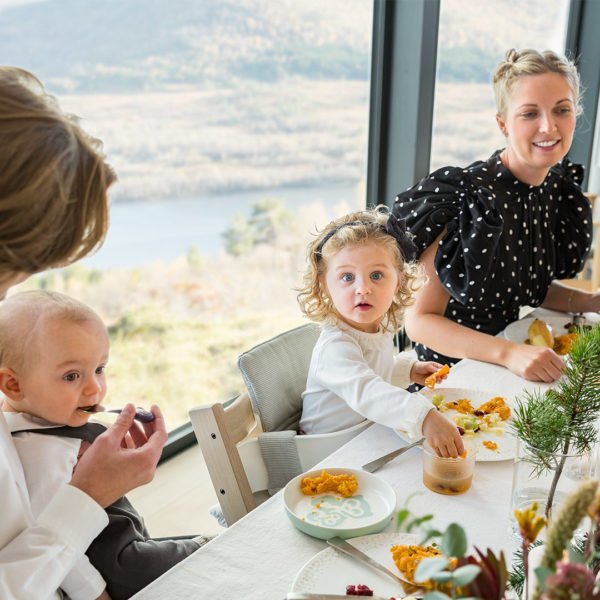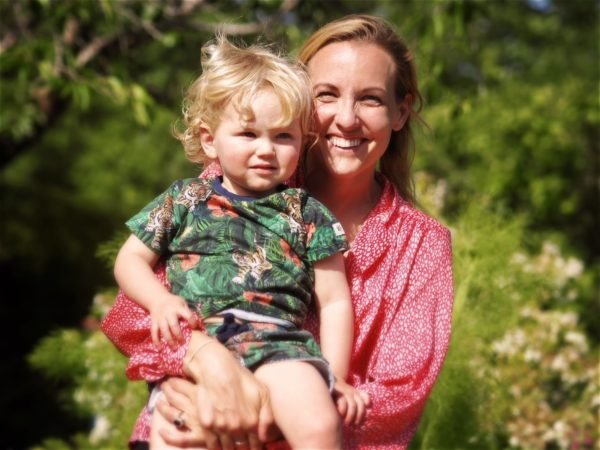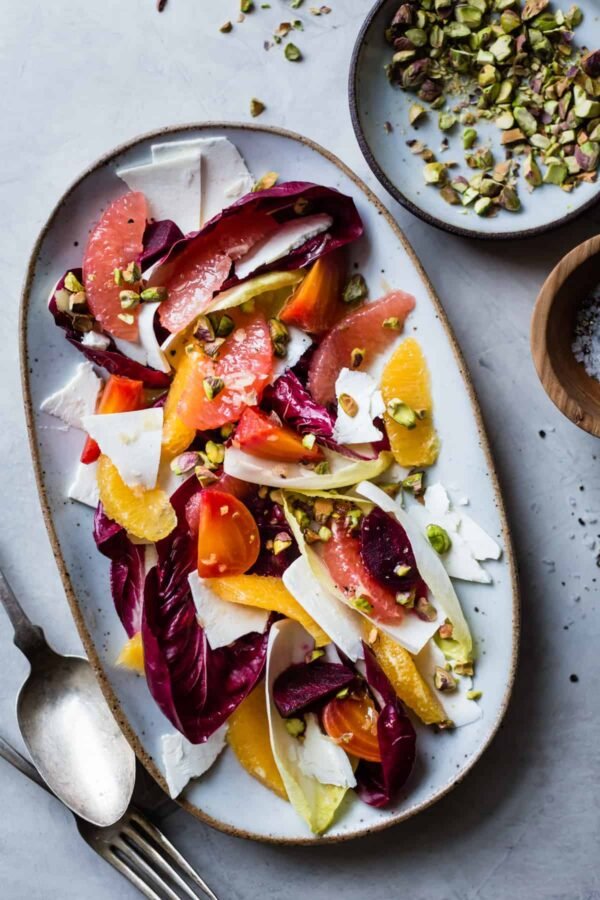
10 Mealtime Routines for Creating Little Foodies

The way we talk about and act around food at mealtimes can actually have long lasting effects on how our children’s relationships with food develop. We also know from research that children’s eating behaviours and patterns of eating track. So the kinds of foods they eat when they are younger (babies even!) really can make a difference to how they eat as they get older too.
Today we spoke with Charlotte Stirling-Reed, the Baby & Child Nutritionist for Stokke. Charlotte shared with us 10 mealtime routines to help you create a little foodie, who will hopefully go on to love their foods just as much as you do!
1.) Sit together at mealtimes – babies, toddlers, children and families can all benefit from sitting together as much as possible at mealtimes. Some of the old traditions of “sitting down for dinner” have been somewhat lost in today’s society, with everyone being busier and perhaps more distracted or just not at home so much. However, sitting together for meals can bring families together, allow for learning, playing, listening and the development of social skills. It can also encourage learning about food and actually help make mealtimes an enjoyable occasion for all ages.
2.) Eating together – Sitting together and being present at mealtimes helps, but actually eating similar things can also help children to accept a wider variety. Some research shows that families eating together is a big factor in positively influencing the diets of their children, so as much as you can try to ROLEMODEL what a balanced diet looks like, and it’s likely your little ones will follow suit. Remember babies also learn the WHAT and the HOW of eating from copying their parents and those around them too, which is why we love the Stokke Tripp Trapp as a great way to bring baby right to the table with you at mealtimes.
Research, conducted by premium children’s brand, Stokke, explored the importance of eating meals together as a family, found that 49% of participants believe eating together as a family creates a happier child and 34% believe it creates a more confident child.
3.) Even from an early age, try to involve baby in mealtimes & food occasions by bringing them up to the table with you and allowing them to become a part of the meal. Try to have certain times or days when you all sit and eat together as a family & build it into your routine, so it becomes a regular feature and an expected part of the day.
4.) Make CHOICE part of your mealtime routine. Kids are more likely to eat something they feel they’ve had a say in, so instead of just plating up their food, ask them first “do you want X or Y with your dinner” or “Would you like spaghetti or rice for dinner today?” for example. You could also try offering multiple sides and giving them autonomy to choose what they want. You’ll probably be surprised how much more gets eaten when it’s them calling the shots. Younger babies don’t often have much choice in their meal options, but try offering them a variety & following their lead.
5.) Get little ones involved in mealtimes – not only does building this into your evening routine give parents a bit of a break, but again getting them involved helps them to feel more “part of it” and can make mealtimes more of an occasion. Ask for help with laying, mixing, serving or (dare we say it) clearing up at the end of the meal.
6.) Get them cooking with you (maybe one for the weekends?) – Building fun life skills lessons into your family’s week can help little ones learn the art of cooking, even with toddlers, it can be really fun to get baking – making bread, or cakes can be simple and for older children helping to build on their essential cookery skills may help them uncover hidden talents, AS WELL as hopefully encouraging an enjoyment in cooking and preparing foods with the family.
Stokke’s research found that 61% of parents let their children help with dinner, with 45% doing so to help teach their children life skills.
7.) Why not try kicking off mealtimes with a quick fire question round to find out how everyone’s day was? Or start off with a simple game. Making these kind of approaches a family tradition can bring families together and help make mealtimes a bit more fun and more of a social occasion too. If you can start when they are young, then when they are older they are likely to just accept it as the norm and WANT to continue to be involved in those meals (we can hope!). Young babies will also pick up from fun and enjoyment shared at these mealtimes and therefore be more likely to WANT to be part of it too.
8.) On that note, trying to make the mealtime environment fun and enjoyable for all can be KEY to having children who actually want to be a part of the family meals and also eat the foods you’ve got on offer. Try to keep mealtimes light and avoid negative topics as much as possible. Play some soft music and avoid it becoming a negative space that the kids are eager to avoid. It’s easier said than done, but sometimes stepping back from the table and observing where a few little tweaks can be made is all that’s needed. 15% of parents said that eating together has become an occasion they look forward to during the pandemic.
9.) At mealtimes have conversations about the meals and foods on offer, allow honest opinions and maybe even make a game of rating the meals for the week. This can help children and toddlers to really think about their foods and their likes and dislikes a little more as well as being mindful about the foods they are eating.
10.) Keep the pressure OFF for everyone, including yourself. Think about what’s eaten over a week, not day to day and avoid coaxing little ones to eat or ensuring kids stay at the table until they’ve finished the meal. All of this can impose negative associations around foods which is ultimately what we want to avoid if we’re trying to create little foodies.
By: Charlotte Stirling-Reed – The Baby & Child Nutritionist for Stokke

Stokke are hosting a FREE weaning webinar – How to raise a confident foodie and help your baby love their broccoli as much as their cake! Charlotte Stirling-Reed Nutritionist and Author will be on Zoom 28th April at 8pm. https://www.eventbrite.com/e/how-to-wean-your-baby-masterclass-tickets-143331352935?aff=Media7
Expert nutritional advice from Charlotte Stirling-Reed, author of new book “How to wean your baby”, that publishes on 29th April but available for pre-order. www.amazon.co.uk/dp/1785043242 @sr_nutrition
Stokke is a leading high end baby brand in Scandinavia whose ethos is to nurture family bonding, having your baby closer to you and the importance of eye contact. The iconic Tripp Trapp® highchair was launched in 1972 and has since sold more than 12 million worldwide. www.stokke.com @stokkebaby












































